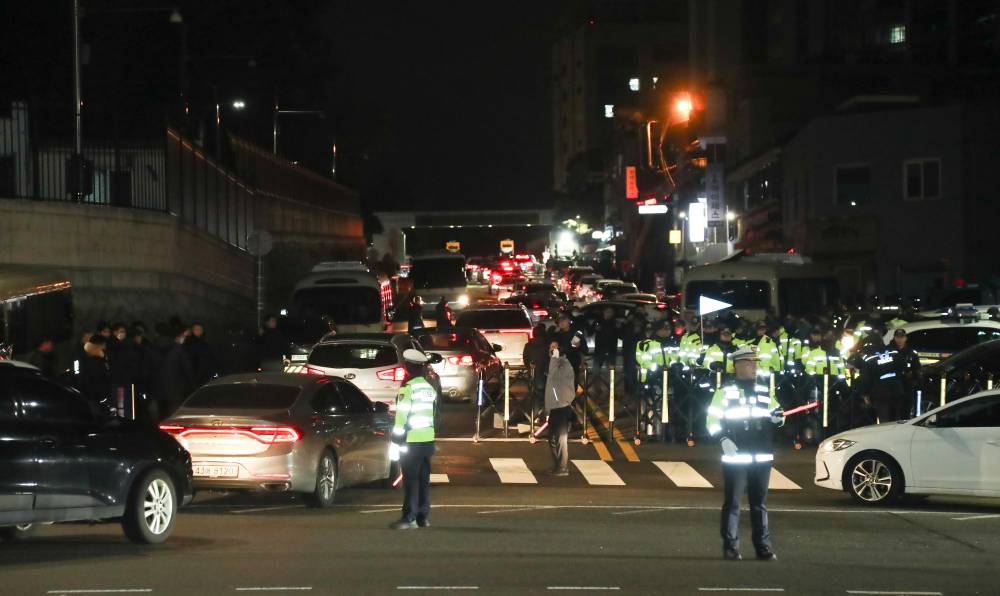Explainer: The inside story of South Korea's short-lived martial law
The drama reportedly unfolded after an alleged "political and constitutional crisis", raising questions about Yoon's leadership and the future of South Korea's democracy.

The drama reportedly unfolded after an alleged "political and constitutional crisis", raising questions about Yoon's leadership and the future of South Korea's democracy.

SHAH ALAM - South Korean President Yoon Suk Yeol stunned the nation and the world by declaring martial law on Tuesday night, only to lift it six hours later following a unanimous vote by lawmakers to overrule his decision.
The drama reportedly unfolded after an alleged "political and constitutional crisis", raising questions about Yoon's leadership and the future of South Korea's democracy.
What Triggered Martial Law?
Yoon justified his drastic decision by accusing the Opposition-dominated National Assembly of engaging in "anti-state" activities and aligning with North Korea.
"The National Assembly has become a monster that destroys the liberal democratic system," Yoon declared during his Tuesday night address.
The martial law decree, signed by Army Chief of Staff General Park An-su, suspended all political activities, restricted press freedoms and mandated striking medical workers to return to their jobs.
Yoon claimed the measure was necessary to protect the constitution and the country from "pro-North Korean forces," a term often used by South Korean conservatives to label their liberal opponents.
The National Assembly's Rejection
Despite the military's presence around the parliament, 190 lawmakers, including 18 from Yoon's own People Power Party (PPP), convened early Wednesday morning to vote unanimously against the martial law declaration.
This decisive move demonstrated the strength of South Korea’s democratic institutions, with opposition leader Lee Jae-myung calling the president’s action “a grave violation of the constitution.”
Yoon, facing immense political backlash, conceded defeat and formally lifted martial law during a Cabinet meeting around 4.30am.
United States’ Reaction
The United States (US), a close ally of South Korea, expressed concern over the situation but commended the quick actions of South Korea’s National Assembly to restore democratic order.
A senior official in the President Joe Biden administration said that they will continue to stand by South Korea as a strong democratic partner and commend its institutions for upholding democratic values during these challenging moments.
The US has long relied on South Korea as a stable partner in the region, especially amidst tensions with North Korea.
The brief imposition of martial law has led to questions about South Korea’s political stability under Yoon’s leadership.
South Korea’s Martial Law History
South Korea has a painful history with martial law, which has been declared 16 times since World War II. The most infamous instance occurred in 1980 during the Gwangju Uprising, where the military violently suppressed pro-democracy protests, killing around 200 people.
Yoon's declaration brought back traumatic memories for many South Koreans, prompting even members of his own party, including PPP leader Han Dong-hoon, to condemn the move. Han called it “unconstitutional” and pledged to stand “with the people” against Yoon’s decree.
Political Fallout and Calls for Impeachment
The liberal Democratic Party, which holds a parliamentary majority, has called for Yoon’s immediate resignation or impeachment.
“President Yoon Suk Yeol’s martial law declaration was a clear violation of the constitution. It was a grave act of rebellion,” the party emphasised.
If impeachment proceeds, it will require 200 votes in the 300-member National Assembly. With the Democratic Party and smaller Opposition factions holding 192 seats, bipartisan support will be crucial.
Yoon’s ruling party is already fractured, as evidenced by the 18 lawmakers who voted to overturn the martial law order.
Should impeachment succeed, Yoon would lose his constitutional powers and Prime Minister Han Duck-soo would assume presidential responsibilities until the Constitutional Court decides his fate.
What's Next for South Korea?
While the immediate crisis has subsided, the political turbulence surrounding Yoon's presidency is far from over. The fallout from his martial law declaration has further eroded his approval ratings, which recently hit a low of 17 per cent.
The scandal-plagued president now faces growing calls for his resignation, with mass protests expected over the coming weekend.
The brief martial law has also damaged South Korea’s international reputation as a stable democracy, although experts believe the country's resilient institutions will withstand this challenge.
As the political drama unfolds, the international community will watch closely, given South Korea’s pivotal role in regional stability. For now, the world waits to see whether Yoon can salvage his presidency or if his time in office will end prematurely.